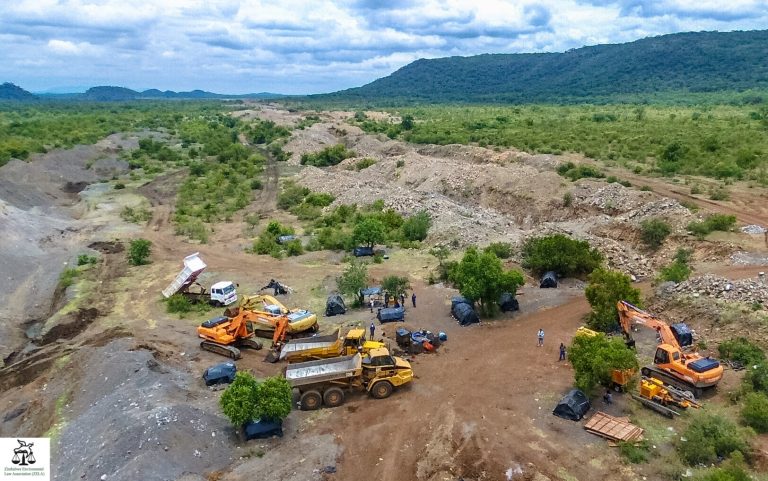
Zimbabwe should recalibrate sectoral policies to have a climate agenda and upscale investments in rainwater harvesting, supplementary irrigation, adoption of drought tolerant crop varieties in order to reverse a potential climate crisis which is further threatening already strained water supplies, food and nutrition security.
By Conrad Mwanawashe
Zimbabwe should calibrate sectoral policies to have a climate agenda and upscale investments in rainwater harvesting, supplementary irrigation, adoption of drought tolerant crop varieties in order to reverse a potential climate crisis which is further threatening already strained water supplies, food and nutrition security.
Government has also acquired five radars to improve on early warning systems, weather and climate monitoring and weather-related information for decision making by policy makers, farmers, industry and other stakeholders building towards data driven climate resilience.
The country’s socio-economic development is very much dependent on rainfall and over the last 10 years, has had 4-5 seasons of drought at a time when economic performance is strongly positively co-related with rainfall.
“While, our economy takes a knock during droughts years, we need to appropriately recalibrate our sectoral policies to have a climate agenda. In government and through treasury we are in agreement. What we require is to go beyond our national policy ambitions to meet our socio-economic aspirations,” Environment, Climate, Tourism and Hospitality Industry Minister Nqobizitha Mangaliso Ndhlovu has said.
Ndhlovu was addressing the Financing Climate Change Adaptation Investment Conference hosted by Financial Markets Indaba in partnership with Business Weekly early March.
The change in climate will further threaten already strained water supplies, food and nutrition security, health, hydro-electric power generation, human settlements, infrastructure, and biodiversity amongst other key areas of human development thereby impeding the country’s social and economic development aspirations. Loss and damage to infrastructure, in the past, today and in the future is real but hard to contemplate.
“In 2021 our economy grew by 7 percent on the back of a good above normal rainfall season. It is therefore critical that we upscale investments in rainwater harvesting, supplementary irrigation adoption of drought tolerant crop varieties and adoption of viable business models to sustain agricultural production through value addition, market development and consolidation,” said Ndhlovu.
Climate finance is needed for mitigation activities, as large-scale investments are required to significantly reduce emissions. Climate finance is equally important for adaptation, as significant financial resources are needed to adapt to the adverse effects and reduce the impacts of a changing climate. To develop in a low carbon and climate resilient pathway, Zimbabwe received support from various climate finance mechanisms among them, the Green Climate Fund (GCF), Global Environment Facility (GEF) and Adaptation Fund.
Through the United Nations Framework Convention on Climate Change (UNFCCC), Parties meet at the Conference of Parties (COP) to discuss and deliberate on the implementation of Climate Conventions and Agreements. Last year, the 26th Conference of Parties (COP 26) to the United Nations Framework Convention on Climate Change (UNFCCC) was held in Glasgow, United Kingdom where issues of climate finance were discussed and emphasis was on the need for developed country Parties to support climate action in developing country Parties. The main issues that arose include:
To secure a global net zero emissions consensus by mid-century and keep temperature goal of not exceeding 1.5 degrees Celsius above pre-industrial levels within reach;
To upscale momentum for adaptation in order to protect communities and natural habitats, specifically by protecting and restoring ecosystems and building defenses, early warning systems and resilient agriculture and infrastructure to avoid loss of homes, livelihoods, and even lives;
To work together to deliver on these goals by finalizing the Paris Rulebook and accelerating climate action;
Mobilize at least $100bn (£74bn) in climate finance per year for access by developing country Parties.
The Paris Agreement (2015) states that increased financial resources should aim to achieve a balance between adaptation and mitigation. After two weeks of intensive negotiations, the 26th Conference of Parties (COP26) adopted a text which made an unprecedented reference to the role of fossil fuels in the climate crisis.
Zimbabwe highlighted the high levels of vulnerability as a country due to the impacts of climate change and the need for greater commitment and urgency towards climate change adaptation and mitigation.
In that regard, Ndhlovu highlighted that while government was pursuing multi-lateral climate financing, it was critical for the country to mobilize domestic financial resources at scale, both public and private resources, to leverage international financial resources.
“Let me emphasize that it is not enough to solely rely on international climate finance, there is also a need to tap into national resources through innovative financial facilities and leverage the private sector to take the lead in addressing climate change. Therefore, let us take advantage of this conference to explore how we can mobilize domestic finance for climate change mitigation and adaptation,” he added.
“To assist in financial resource mobilization, my Ministry nominated and supported the successful accreditation of two institutions namely the Infrastructure Development Bank of Zimbabwe (IDBZ) and the Environmental Management Agency (EMA) to the Green Climate Fund and the Adaptation Fund respectively. All these processes demonstrate the country’s preparedness to access and manage climate finance.”











